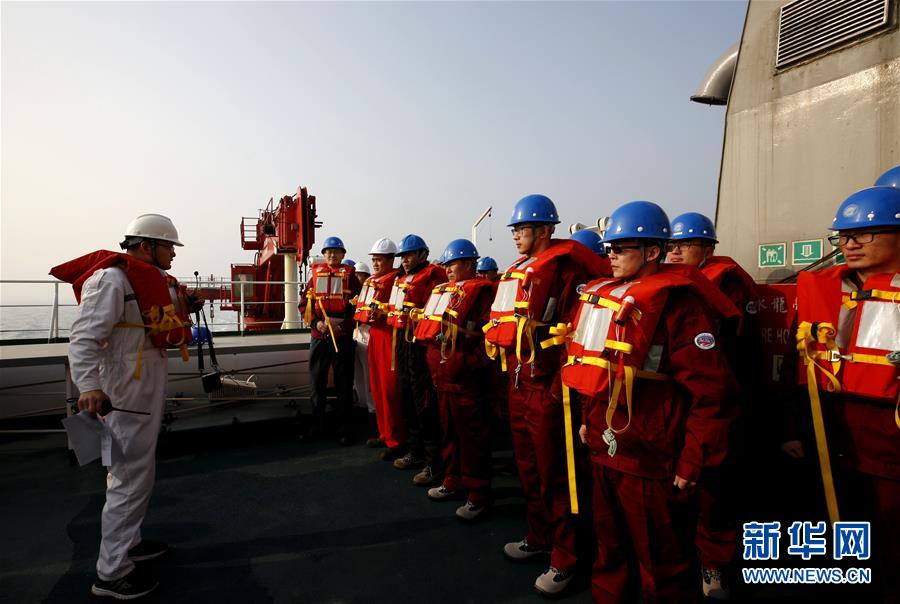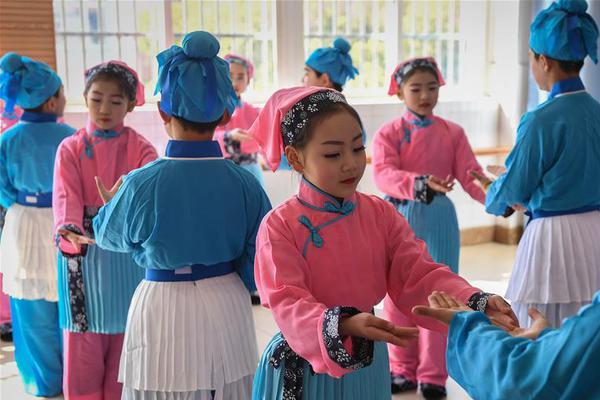
C [Analysis] The operating system should usually include the following five functional modules: (1) Processor management. When multiple programs run at the same time, solve the processor (CPU) time allocation problem. ( 2) Operation management. The program to complete an independent task and its required data constitute a task.
The five functions of the computer operating system are: memory management, processor management, file management, device management and job management. The most basic function of processor management is to handle interrupt events. The processor can only detect interrupt events and generate interrupts and cannot process them. After configuring the operating system, various events can be handled.
The five functions of the operating system are processor management, memory management, device management, file management and job management.Processor management The most basic function of processor management is to process interrupt events. After configuring the operating system, various events can be processed.

The main function of the computer operating system is process management Reason, its work is mainly the process.Scheduling, in the case of a single user and a single task, the processor is only monopolized by one user's task, and the process management work is very simple.
The operating system has five functions: processor management: mainly controls and manages the work of the CPU. Storage management: mainly allocate and manage memory. Device management: mainly manage basic input and output devices. File management: responsible for the organization, storage, operation and protection of computer files.
The functions of the computer operating system include: processor management, memory management, device management, file management, job management and other functional modules. Processor management. The most basic function of processor management is to handle interrupt events. The processor can only detect interrupt events and generate interrupts and cannot process them.
According to the query Baidu Education, the five functions that computer operating systems usually have are ___.
Five management functions of the operating system: job management: including tasks, interface management, human-computer interaction, graphical interface, voice control and virtual reality, etc. File management: also known as information management. Storage management: The essence is the management of storage "space", which mainly refers to the management of the main memory.
The five functions of the operating system are processor management, memory management, device management, file management and job management. Processor management The most basic function of processor management is to process interrupt events. After configuring the operating system, various events can be processed.
The operating system has five functions: processor management: mainly controls and manages the work of the CPU.Storage management: mainly carry out the allocation and management of memory. Equipment management: mainly manage basic input and output equipment. File management: responsible for the organization, storage, operation and protection of computer files.
processor management: mainly control and manage the work of cpu. Storage management: mainly carry out memory allocation and management device management: mainly manage basic input and output device file management: responsible for the organization, storage, operation and protection of computer files, etc.
The operating system has five major functions, namely, the functions of the operating system are mainly reflected in the management of computer resources - microprocessors, memory, external devices, files and operations. The operating system sets this management function into the corresponding program management module, and each management The module is in charge of certain functions.
The main function of the operating system is to manage all the resources (hardware and software) of the computer.
The main function of the computer operating system is process management, and its main work is process scheduling. In the case of a single user and a single task, the processor is only monopolized by one user's task, and the work of process management is very simple.
The operating system has five functions: processor management: mainly controls and manages the work of the CPU. Storage management: mainly allocate and manage memory. Device management: mainly manage basic input and output devices. File management: responsible for the organization, storage, operation and protection of computer files.
The main functions of the operating system are resource management, program control and human-computer interaction. Computer system resources can be divided into two categories: equipment resources and information resources. Device resources refer to the hardware devices that make up the computer, such as the central processor, main memory, disk memory, printer, tape memory, monitor, keyboard input device and mouse, etc.
The main function of the computer operating system is process management, and its work is mainly process scheduling. In the case of a single user and a single task, the processor is only exclusive to one task of one user, and the work of process management is very simple.
Operating system (OperatiNg System, abbreviated as OS) is a program collection that controls and manages computer software and hardware resources to organize multiple users to share multiple resources in the most reasonable and effective way. Any other software must be run with the support of the operating system.
The functions of the computer operating system include: processor management, memory management, device management, file management, job management and other functional modules. Processor management. The most basic function of processor management is to handle interrupt events. The processor can only detect interrupt events and generate interrupts and cannot process them.
The operating system has five functions: processor management: mainly controls and manages the work of the CPU. Storage management: mainly allocate and manage memory. Device management: mainly manage basic input and output devices. File management: responsible for the organization, storage, operation and protection of computer files.
Five management functions of the operating system: job management: including tasks, interface management, human-computer interaction, graphical interface, voice control and virtual reality, etc. File management: also known as information management. Storage management: The essence is the management of storage "space", which mainly refers to the management of the main memory.
OKX Wallet app download for Android-APP, download it now, new users will receive a novice gift pack.
C [Analysis] The operating system should usually include the following five functional modules: (1) Processor management. When multiple programs run at the same time, solve the processor (CPU) time allocation problem. ( 2) Operation management. The program to complete an independent task and its required data constitute a task.
The five functions of the computer operating system are: memory management, processor management, file management, device management and job management. The most basic function of processor management is to handle interrupt events. The processor can only detect interrupt events and generate interrupts and cannot process them. After configuring the operating system, various events can be handled.
The five functions of the operating system are processor management, memory management, device management, file management and job management.Processor management The most basic function of processor management is to process interrupt events. After configuring the operating system, various events can be processed.

The main function of the computer operating system is process management Reason, its work is mainly the process.Scheduling, in the case of a single user and a single task, the processor is only monopolized by one user's task, and the process management work is very simple.
The operating system has five functions: processor management: mainly controls and manages the work of the CPU. Storage management: mainly allocate and manage memory. Device management: mainly manage basic input and output devices. File management: responsible for the organization, storage, operation and protection of computer files.
The functions of the computer operating system include: processor management, memory management, device management, file management, job management and other functional modules. Processor management. The most basic function of processor management is to handle interrupt events. The processor can only detect interrupt events and generate interrupts and cannot process them.
According to the query Baidu Education, the five functions that computer operating systems usually have are ___.
Five management functions of the operating system: job management: including tasks, interface management, human-computer interaction, graphical interface, voice control and virtual reality, etc. File management: also known as information management. Storage management: The essence is the management of storage "space", which mainly refers to the management of the main memory.
The five functions of the operating system are processor management, memory management, device management, file management and job management. Processor management The most basic function of processor management is to process interrupt events. After configuring the operating system, various events can be processed.
The operating system has five functions: processor management: mainly controls and manages the work of the CPU.Storage management: mainly carry out the allocation and management of memory. Equipment management: mainly manage basic input and output equipment. File management: responsible for the organization, storage, operation and protection of computer files.
processor management: mainly control and manage the work of cpu. Storage management: mainly carry out memory allocation and management device management: mainly manage basic input and output device file management: responsible for the organization, storage, operation and protection of computer files, etc.
The operating system has five major functions, namely, the functions of the operating system are mainly reflected in the management of computer resources - microprocessors, memory, external devices, files and operations. The operating system sets this management function into the corresponding program management module, and each management The module is in charge of certain functions.
The main function of the operating system is to manage all the resources (hardware and software) of the computer.
The main function of the computer operating system is process management, and its main work is process scheduling. In the case of a single user and a single task, the processor is only monopolized by one user's task, and the work of process management is very simple.
The operating system has five functions: processor management: mainly controls and manages the work of the CPU. Storage management: mainly allocate and manage memory. Device management: mainly manage basic input and output devices. File management: responsible for the organization, storage, operation and protection of computer files.
The main functions of the operating system are resource management, program control and human-computer interaction. Computer system resources can be divided into two categories: equipment resources and information resources. Device resources refer to the hardware devices that make up the computer, such as the central processor, main memory, disk memory, printer, tape memory, monitor, keyboard input device and mouse, etc.
The main function of the computer operating system is process management, and its work is mainly process scheduling. In the case of a single user and a single task, the processor is only exclusive to one task of one user, and the work of process management is very simple.
Operating system (OperatiNg System, abbreviated as OS) is a program collection that controls and manages computer software and hardware resources to organize multiple users to share multiple resources in the most reasonable and effective way. Any other software must be run with the support of the operating system.
The functions of the computer operating system include: processor management, memory management, device management, file management, job management and other functional modules. Processor management. The most basic function of processor management is to handle interrupt events. The processor can only detect interrupt events and generate interrupts and cannot process them.
The operating system has five functions: processor management: mainly controls and manages the work of the CPU. Storage management: mainly allocate and manage memory. Device management: mainly manage basic input and output devices. File management: responsible for the organization, storage, operation and protection of computer files.
Five management functions of the operating system: job management: including tasks, interface management, human-computer interaction, graphical interface, voice control and virtual reality, etc. File management: also known as information management. Storage management: The essence is the management of storage "space", which mainly refers to the management of the main memory.
 Binance login
Binance login
188.18MB
Check Binance login
Binance login
935.63MB
Check Binance login
Binance login
881.71MB
Check OKX Wallet apk download latest version
OKX Wallet apk download latest version
567.53MB
Check Binance app
Binance app
552.45MB
Check Binance market
Binance market
729.82MB
Check OKX Wallet app
OKX Wallet app
446.88MB
Check Binance login
Binance login
425.66MB
Check Binance US
Binance US
976.64MB
Check Binance download Android
Binance download Android
482.32MB
Check Binance Download for PC Windows 10
Binance Download for PC Windows 10
465.98MB
Check OKX Wallet apk download latest version
OKX Wallet apk download latest version
166.38MB
Check Binance download
Binance download
818.21MB
Check OKX Wallet app download for Android
OKX Wallet app download for Android
995.51MB
Check OKX review
OKX review
572.57MB
Check Binance app
Binance app
996.18MB
Check Binance app
Binance app
859.48MB
Check okx.com login
okx.com login
462.12MB
Check Binance app
Binance app
721.93MB
Check OKX Wallet app download for Android
OKX Wallet app download for Android
338.29MB
Check OKX Wallet to exchange
OKX Wallet to exchange
654.56MB
Check OKX Wallet to exchange
OKX Wallet to exchange
574.78MB
Check Binance download iOS
Binance download iOS
259.77MB
Check OKX Wallet download
OKX Wallet download
227.36MB
Check Binance market
Binance market
935.91MB
Check OKX Wallet extension
OKX Wallet extension
379.66MB
Check Binance app download Play Store
Binance app download Play Store
913.41MB
Check OKX Wallet APK
OKX Wallet APK
664.48MB
Check OKX Wallet
OKX Wallet
798.63MB
Check OKX Wallet download
OKX Wallet download
821.94MB
Check Binance US
Binance US
826.99MB
Check OKX Wallet APK
OKX Wallet APK
449.45MB
Check Okx app download
Okx app download
764.14MB
Check Binance wallet
Binance wallet
288.28MB
Check OKX Wallet apk download
OKX Wallet apk download
218.42MB
Check OKX app
OKX app
441.54MB
Check
Scan to install
OKX Wallet app download for Android to discover more
Netizen comments More
2733 轩鹤冠猴网
2025-01-23 11:03 recommend
374 漫无边际网
2025-01-23 10:39 recommend
1329 东跑西颠网
2025-01-23 09:52 recommend
2586 恶衣恶食网
2025-01-23 09:38 recommend
1807 卷甲衔枚网
2025-01-23 09:30 recommend